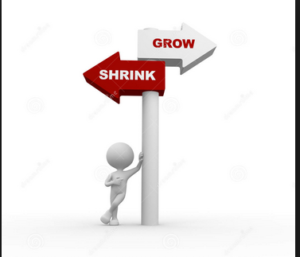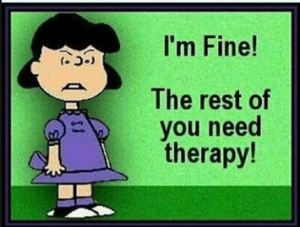
When a scientist explores mysticism or when a Mystic contemplates a science laboratory, it produces astounding results. Though to a western trained mind it might sound rather strange , Science and Religion or Mysticism need not be mutually exclusive. After all where Physics ends where Metaphysics starts and Psychology and Parapsychology do overlap. So it is natural that many scientists stray into the zone of philosophy and vice versa. The fourteenth Dalailama is a passionate student of Science and Technology. He has initiated a number of studies to explore Buddhist methods on training of mind through the prism of Science. Some of the other books where Science and Mysticism overlap are :
- The Tao of Physics by Fritjof Capre
- Zen and the Art of Motorcycle maintenance by Robert Pirsig
- Altered Traits: Science Reveals How Meditation Changes Your Mind, Brain, and Body By Daniel Goleman

These days, some of the top bestsellers are books on self-improvement. At some stage , everyone gets motivated to read books on self improvement and a good number of people do try and practice what these books advocate. Most of these books talk of positive thinking and positive attitude. It’s like a magic wand. Believe it can be done and it is done. Phew, easy does it. Anyone can. Be a winner. In this group what stands out is one book which started simply with a sentence “Life is difficult” . It is a paragraph by itself. It is not a book that says think strong and you will be strong , think you are rich and wealth will follow. It is a kind of admission that life was indeed difficult and one had to face it. That was the first step to relief or Nirvana.

The book is “The Road Less Traveled by Dr Scott M Peck. When I started reading ,it proved to be an unputdownable book. Later , I learnt that, the first paragraph was taken from Buddhist philosophy , the first of the four noble truths ‘reality of suffering’”. You can find the influence of Zen Buddhism as well as ideas of Christian Philosophy through out this book and other books by the author.
Dr Peck was trained in Psychology and he did a stint with US Army for 9 years rising to the rank of a Lt Col. Later he practiced as a psychiatrist at Connecticut (USA).Though he was born in a protestant family, he had a secular upbringing. Later, he developed interest in Zen Buddhism and Islamic Mysticism before he was drawn to Christianity. He was Baptized at the age of 43, in the year 1980. to hear it in his own words
……..Even though I was raised in an extremely secular home, as I look back on it, I was a freakishly religious kid, although not specifically Christian. And always I felt God to be in the background, always benign, never paid him or her that much attention, specifically, but felt him or her very much there. Christianity meant nothing to me as an adolescent, but in adolescence I fell in love with Eastern mystical writings, and then very gradually evolved from them to more attention to the Jewish and Muslim mystics, and then only finally to Jesus making more sense as I was moving toward writing The Road Less Traveled, when I was about 35 or so. I was a mystic first, and a Christian second. And I entered the Christian church through the back door of Christian mysticism, or maybe the top door, whichever way you want to look at it.
My baptism was in a number of ways a real kind of death for me, as it is supposed to be. And one of the reasons it was a death for me was that by declaring myself a Christian, I was declaring myself not to be Buddhist, not be Jewish, not be Hindu, not be Muslim, and as if I was casting disparagement upon traditions that had deeply nurtured me. So that was just one way in which my baptism represented a death in that I declared myself and regretfully in many ways. …..
Naturally , his first book was a on Psychology liberally laced with the idea of faith, goodness, evil , God, religion and such terms not normally associated with Psychology as a Science. Random House, where the then little-known psychiatrist first tried to publish his original manuscript, turned him down, saying the final section was “too Christ-y.”
When finally published, it was was an instant hit. So what is this book about ?
The book consists of four parts. In the first part Peck examines the notion of discipline, which he considers essential for emotional, spiritual, and psychological health, and which he describes as “the means of spiritual evolution”. The elements of discipline that make for such health include the ability to delay gratification, accepting responsibility for oneself and one’s actions, a dedication to truth, and “balancing”. “Balancing” refers to the problem of reconciling multiple, complex, possibly conflicting factors that impact on an important decision—on one’s own behalf or on behalf of another. The discipline here is quite different from army discipline where it is all about appearance and obedience. To Dr Peck, Discipline is only about how you keep the promises you made to yourself.
In the second part, Dr Peck talks of ‘Love;. First he follows the Indian idea of ‘Neti Neti’(not this, not this) ; a process of examining various theories and eliminating them one by one in search of Truth. He eliminates certain popular conceptions of ‘what is love’ to label them as ‘romantic love’ , ‘dependency’ and so on. Then he tries to list down the attributes of Love; devoting a chapter for each attribute , illustrating with case studies.
Dr Peck argues that “true” love is rather an action that one undertakes consciously in order to extend one’s ego boundaries by including others or humanity, and is therefore the spiritual nurturing—which can be directed toward oneself, as well as toward one’s beloved.
In the third part Peck deals with religion, and the commonly accepted views and misconceptions concerning religion. He recounts experiences from several patient case histories, and the evolution of the patients’ notion of God, religion, atheism—especially of their own “religiosity” or atheism—as their therapy with Peck progressed.
The fourth and final part concerns “grace“, the powerful force originating outside human consciousness that nurtures spiritual growth in human beings. In order to focus on the topic, he describes the miracles of health, the unconscious, and serendipity—phenomena which Peck says:
- nurture human life and spiritual growth,
- are incompletely understood by scientific thinking,
- are commonplace among humanity,
- originate outside the conscious human will.
He concludes that “the miracles described indicate that our growth as human beings is being assisted by a force other than our conscious will”
Overall, the book gives no shortcuts to success. In fact even the word ‘success’ is conspicuous by its absence. What he aims at is to attain more efficiency, balance, better productivity, emotional stability , better inter personal relationships and spiritual development. If all these can be achieved, I suppose success as commonly understood should follow.


 So how did people cope up ? Going to a psychiatrist was neither a socially accepted option nor was it financially viable. One just looked to friends and religion for solace. May be that is the reason every part of the country had a place for all kinds of religious figures. (God-men somehow does not feel right). In a way, these holy men and women , though not trained for this role had some sort of ability to identify mental problems and provide some comfort to the troubled souls. Of course , in an unregulated field there is bound to be exploitation of the willing victims.
So how did people cope up ? Going to a psychiatrist was neither a socially accepted option nor was it financially viable. One just looked to friends and religion for solace. May be that is the reason every part of the country had a place for all kinds of religious figures. (God-men somehow does not feel right). In a way, these holy men and women , though not trained for this role had some sort of ability to identify mental problems and provide some comfort to the troubled souls. Of course , in an unregulated field there is bound to be exploitation of the willing victims.